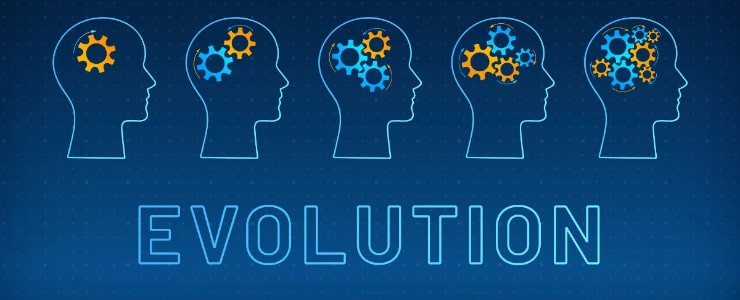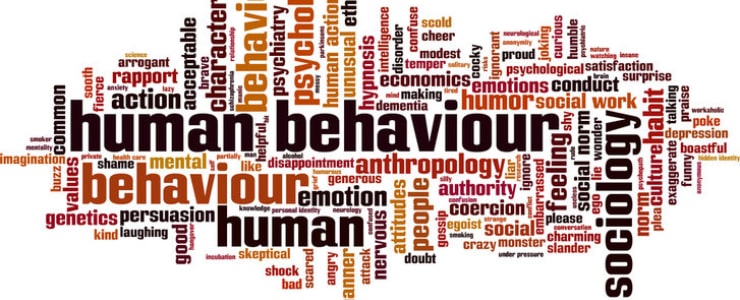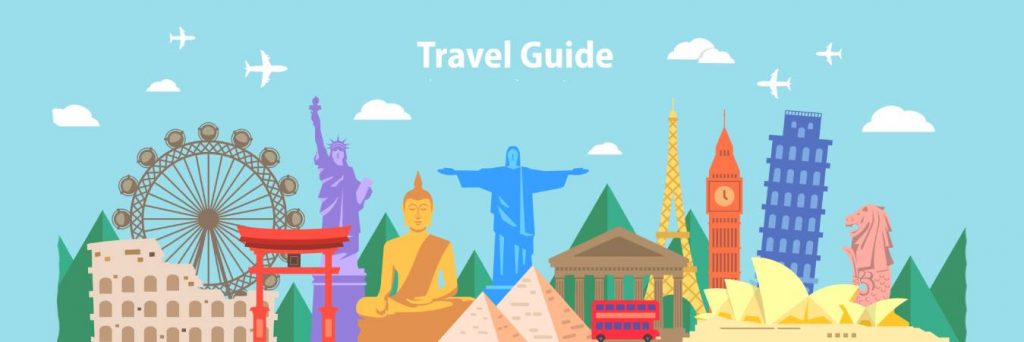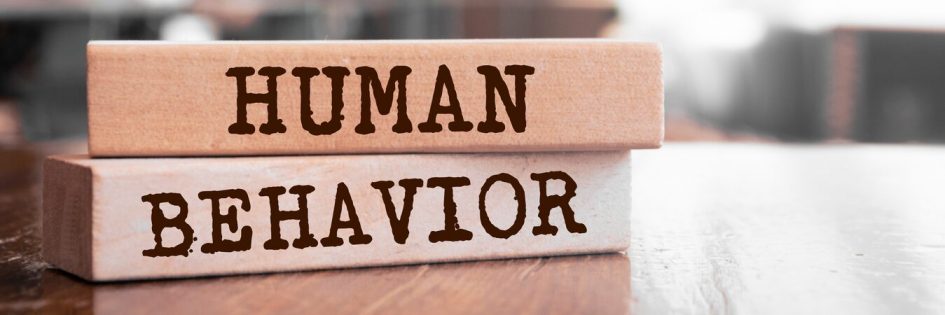Consider a gift that has been wrapped. You can not see what inside, but there are hints: the package’s size and shape, the sound it makes when shaken, how heavy it is, and even whether it feels firm or soft. If you notice all these phenomena, you may make an educated guess about what the present is. We will be understand the human behaviour.
Human conduct is like this. Everything you do or say reveals to the world what’s going on within you. Since psychologists cannot see ideas or emotions, behaviour has been an essential aspect of psychology since its inception. But, when Ivan Pavlov introduced the world to conditioning in the early 1900s, the study of human behaviour became much more essential.
Evolution of Human Behaviour

The evolution of human behaviour has been a complicated and varied process that has occurred over millions of years. While scientists may not completely understand the origins of human behaviour, they have established various ideas about how human behaviour has evolved over the centuries.
According to one popular theory, human behaviour evolved as a result of natural selection. According to this view, some activities, such as collaboration, communication, and tool usage, gave early humans a survival edge over their contemporaries. Individuals that displayed these behaviours were more likely to survive and pass on their genes to subsequent generations, resulting in the progressive development of these behaviours through time.
Another theory says the reason for human behaviour evolution is cultural evolution. According to the hypothesis, cultural and social variables and heredity can also affect human behaviour. As humans developed more complex societies, their behaviours evolved to reflect these changes.
On the other hand, research has also revealed a correlation between human conduct and culture, with genes changing in tandem through time.
Ultimately, scientists and academics continue to research and debate the complex and ongoing process of human behaviour development.
Types of Human Behaviour

There are many different types of human behaviour, and describing and talking about every kind of human behaviour can be equally complex as humans themselves. However, here is a broad category of human behaviour:
1. Personality–Based
Human behaviour is primarily impacted by the nature of the human being. Some are fiery and aggressive, while others are calm and patient. It might be challenging to ascertain a person’s personality immediately. To get to know someone requires a lot of time, effort, and patience. To understand a person or human, we need to engage with them frequently and in a variety of situations in order to understand their personality and coping mechanisms. Some people can be friendlier than others, while others take longer to warm up and develop.
2. Interest–Based
In this type of human behaviour, a person’s level of interest plays a significant role in determining conduct. Furthermore, it has been observed when humans are interested or engrossed in some kind of work or subject, they devote their time and take risks to pursue their passion more than when they are not. Being able to gauge someone’s interest can also be a great way to understand human behaviour.
3. Attitude-Based
As previously stated, interest and personality both play a significant role in understanding human behaviour, but attitude of a human can also deeply affect their behaviour. The right kind of attitude can trigger the right kind of behaviour, while the opposite can be harmful to oneself as well as others around you. Someone’s attitude can be determined by observing the choices they make, the way they interact, and their general human behaviour in a nutshell.
4. Emotion-Based
Keeping track of emotions is equally important when understanding human behaviour. We all have taken one, two, or even more decisions in our life when we are emotionally charged, even when we don’t realize this on the surface. A positive emotional state can encourage risk-taking and open-minded action, whereas a negative emotional state might result in isolation and destruction. All types of human behaviour can be traced back to emotions of some sort, even if additional factors are involved.
Related Post :
- How to Plan a Trip for Beginners: Simple Travel Planning Guide

- How to Plan a Trip for Beginners: Simple Travel Planning Guide

- How to Become an Independent Travel Agent: A Stepwise Guide to Perfection

Overall, a better understanding of human behaviour profoundly impacts society in a hundred different ways. As we continue to understand human behaviour, we can expect a significant positive difference.
Human Behaviour FAQs
1. What are some common human behaviours?
Common human behaviours include conflict, communication, cooperation, creativity, play, social contact, tradition, and work. They also encompass the activities and conduct of individuals.
2. What influences human behaviour in nature?
The capacity for speech and the range of vocabulary used by humans have both been shaped by the natural environment. Vocabulary was developed as a result of the way that we humans used symbols (codes) to describe what we saw and heard as we coexisted with one another and observed what was happening in our natural surroundings.
3. Can one alter human behaviour?
Though behavioural change may not be simple, psychologists have created efficient techniques to support it. These methods are employed by instructors, doctors, and therapists. Theories have also been put out by researchers to describe how change happens.


